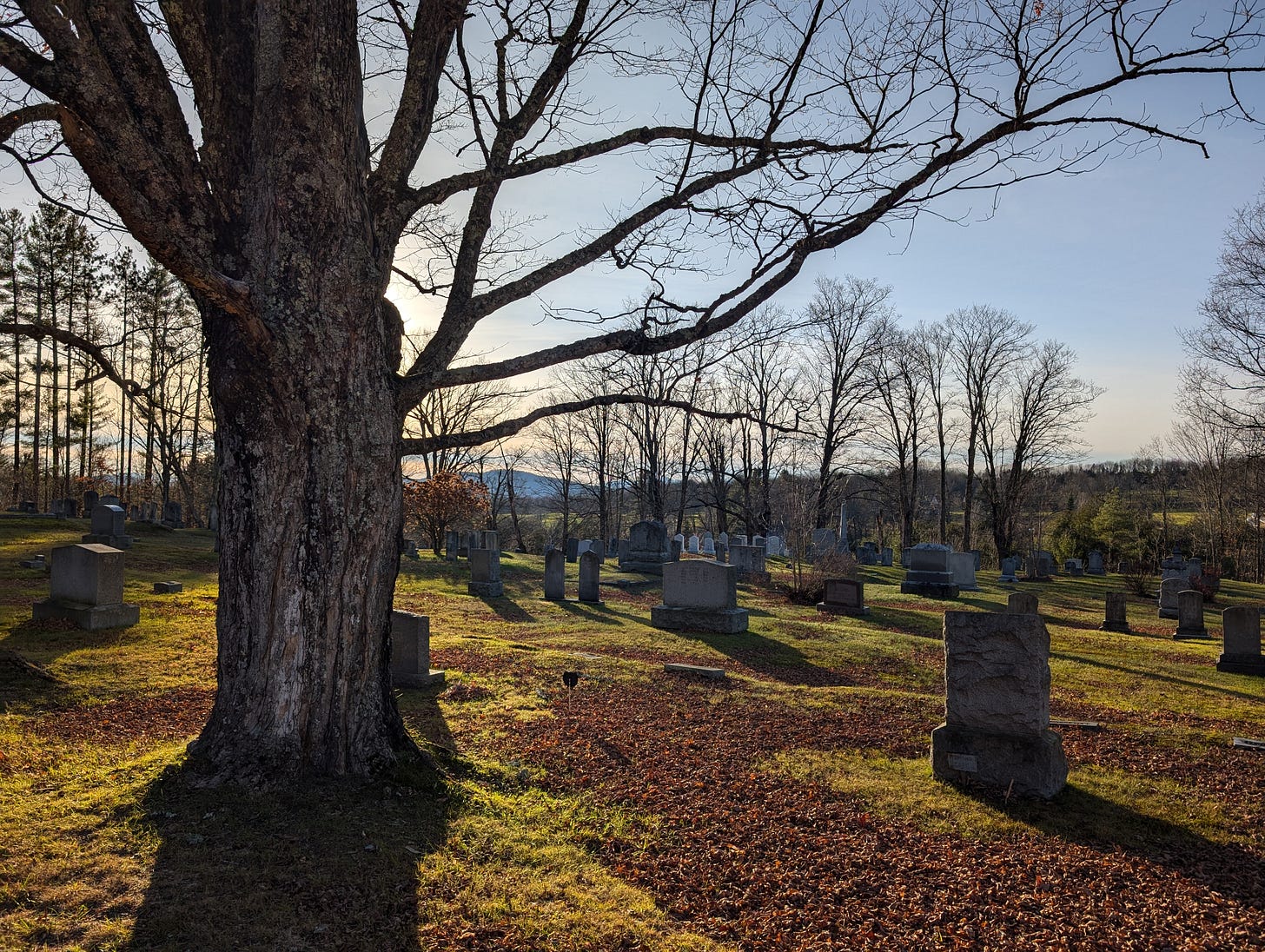Beware the Scribes, Notice The Widow
On the election and our neighbor
As he taught, Jesus said, “Beware of the scribes, who like to walk around in long robes and to be greeted with respect in the marketplaces and to have the best seats in the synagogues and places of honor at banquets! They devour widows’ houses, and for the sake of appearance say long prayers. They will receive the greater condemnation.”
He sat down opposite the treasury and watched the crowd putting money into the treasury. Many rich people put in large sums. A poor widow came and put in two small copper coins, which are worth a penny. Then he called his disciples and said to them, “Truly I tell you, this poor widow has put in more than all those who are contributing to the treasury. For all of them have contributed out of their abundance, but she out of her poverty has put in everything she had, all she had to live on.”
As he came out of the temple, one of his disciples said to him, “Look, Teacher, what large stones and what large buildings!”
Jesus asked him, “Do you see these great buildings? Not one stone will be left here upon another; all will be thrown down.”
Mark 12:38-13:2
When I was first reading today’s Mark lesson, my first feeling was gratitude that our small Vermont church is a community with many widows who continue to do the humble work of the Church. Their love—and if you’re one of them reading this, your love—is a bulwark to me in these days.
Elections are no doubt spiritually dangerous times. I know my liberal friends have been all over the place. Depressed. Enraged. Confounded. Afraid. My conservative friends may be less upset, but still in spiritual danger of pride, hubris, and more. When we all take a closer look at today’s reading, there is something about how Jesus relates to this widow, the leaders, and history that may help us all.
Last week, we talked about how to let your anchor in these times be “love God, love neighbor.” Let it be your anchor still. That love is crucial, and it’s again here in our story of the widow. I think it can teach us something about our moment, but maybe not what we expect.
If you’re like me, you were taught this story in Sunday school, with the focus on the generosity of her last penny as better than that of the wealthy’s large amounts. And that is true, Jesus does highlight this widow’s incredible act of giving. Yet there are layers of tragic irony here that Jesus also wants us to notice, but we miss—the story of this widow is as much about her generosity as it is about the church failing her.
This is not a text that is flattering to those of us who are preachers, clergy, or other societal institutional leaders. Notice that in leading up to this widow’s gift, Jesus points out all these haughty, hypocritical ways these leaders act, all the while they “devour” the houses of widows. That’s the word he uses: devour. They have all the nice clothes, all the respect, honor in public and private, high up in the institutions that pretend to care about the poor…but actually they devour them.
So Jesus sits by the public treasury, and he waits. Our widow comes along, and Jesus notices her. He admires her, but also his heart breaks for her—he sees her giving her last penny and maybe going off to die, even though the religious community should be helping her.
In the midst of this, his disciples are doing what? Distracted by the spectacle. While this tragedy is playing out right in front of them, they are too busy enthralled by how pretty the temple is: “Look, Teacher, what large stones and what large buildings!” (Mark 13:1) Oh. Grand. In response, Jesus takes a look at this living monument to corruption, the beautiful spectacle built by the exploited poor, and muses, “Not one stone will be left here.” It’s coming down.
Giving generously is good, a spiritual discipline and a gift, and the widow’s faith is inspiring.1 But not only are there lots of good places to give besides the Church, the Church should never accept that of yours that you need to live—it should be helping you live. So while yes, there is something the widow teaches us, something genuinely life-giving for us in being generous and giving of ourselves beyond what we think we can, notice all of what Jesus notices: this woman’s life has been exploited by the powerful. For what? For these leaders to go around enriching themselves and feeling holier-than-thou. And so it’s a tragic part of church history that some Christians have used this text to encourage giving beyond your means; the tragedy of an exploited widow has been used to exploit more widows. Utterly appalling.
So what does this have to do with current events and our response as Christians? Let’s listen to prophet Jesus.
Election Blues and Reds
Jesus wears many hats, and he is no doubt in his role as a prophet here. He is a living echo and fulfillment of the Old Testament prophets. So let’s remember and think about what they said.
If you are sitting feeling defeated today because of election results, you are in the same audience that the prophets spoke to their people in, except in much better shape. If you are wondering where God is, remember what God had to say to his people when they were being captured, ripped open, and enslaved by Assyria and Babylon, cultures whose vicious brutality was beyond the pale of any modern society. The prophets witnessed this in real-time. But was their primary focus on how awful those other tribes were, bemoaning Israel’s moral superiority? While these other tribes are not spared any divine judgment, God focuses more on his people, calling them to notice how they did and didn’t treat the poor, the orphan, the widow, people God will never abandon. Here is the way, O Israel, you have been exploiting them.
Today, there is no shortage of people across all political tribes exploiting the poor. How many non-profit executives quietly give themselves huge salaries while saying they care for the needy? Or look at the predators and speculators in North Carolina, buying up land from desperate people, as a friend of mine in those mountains told me earlier this week. Or how about all the millionaire pundits and authors crying out for justice while they plunder the same people for more money, or the politicians raising millions upon millions from broke people only to care for their wealthier donors more? Whether they’re religious leaders or not, what kinds of displays of piety might they say in their fancy clothes? How many gestures from elite academics are done out of crass politics while preying on people’s good and holy sense of compassion so they can be enriched?
Jesus looks at the moral leaders of his day the way he might look at ours, the well-dressed elites who seek the seats of honor, this time not in a banquet hall, but on a cable news desk, or tweeting poison to large follower counts in grifting the attention economy. They all devour the people they claim to protect. And it is not only the poor they devour; maybe they haven’t taken your last penny, but maybe they’ve claimed your allegiance meant for God, setting up shop in your mind, your heart, your soul, your strength.
But what did the prophets say to the people who had been conquered? What is in your control is the idols you worship. What is in your control is where your allegiance is. What is in your control is where you put your faith. So let the idols who fail you turn to ash. And beware when your idol seems to give you what you think you want, because idols and devils show the bait but hide the hook. Babylon thought their gods were hot stuff too.
Love Neighbor (Singular)
Let’s turn back to our anchor of “Love God and Love Neighbor,” the commandment Jesus gave right before this episode. Clearly, his love is not sparing of people in power, but piercing with the prophet’s heart for the downtrodden.
And yet we also see that there are individual scribes, Pharisees, and others who he loves despite what they are part of. Jesus loves Zaccheus…does he love the Rome whom Zaccheus serves? No. He loves his neighbor Zaccheus, who himself exploited the poor. How? Why?
I have wondered if it is a coincidence that the wording of the commandment is to “love your neighbor” rather than “love your neighbors.” The charge to love your neighbor—singular—calls you as an individual to love them as an individual, no matter what group they’re in. I think some of us can get into a trap of having a love for humanity in general that makes us justify our hatred of individual people. You can say, “I love my neighbors as a whole—just not this guy.” But if we love neighbor one at a time, we will love all of them without missing any.
It is easy for us to have love for the widow, and their love is perennial; as one of our church widows described to me her own relationship with God, she said that out of the emptiness of losing her other half, she was able to find a new sense of completeness and partnership with God. Perhaps the widow Jesus noticed felt this connection to God, too, while being in even more dire straits as a first-century Jewish woman than most of our widows are here. Again, it’s probably easy for most of us to love this woman Jesus loves.
But maybe that’s only because you don’t know her politics. Imagine she was a working-class woman down the road who gave her last penny to the party you hate. Does your love for her change? If so, why? Is she not still exploited? Is her love and generosity still not virtuous?
Hating people who didn’t vote like you is not only like hating Zaccheus, it’s like hating this widow and yourself. It’s not just hating the devourers you voted against, it’s hating their devoured. This widow saw the robes, heard the prayers, and assumed they cared for her. Why couldn’t the widow see they were hypocrites? Why couldn’t she see these scribes were liars? Why couldn’t she see year after year no matter how much they promised, her scribes had empty promises?
And why can’t you?
What is the Call?
So what is Jesus calling us to do?
If the story of this widow is as much about the story of religion and society failing her, then one thing we can do as a church and as a society is supporting the poor in our community. Make the church a life-giving place for all, not a life-taking place. I am grateful my small church does that to our means; I am proud to be in a small church of widows (and widowers, and a nice mish-mash of other sinners and saints) helping each other and the community out of an inspiring love.
As an individual, you can also remember that to love your neighbor, you must first notice your neighbor, just as Jesus notices this widow.
(As an aside: I saw a lot of videos last week, most of which were not inspiring. But I did see one video of a young woman in her car who was sad and surprised to hear so many people voted differently than her. And she was expressing genuine, thoughtful humility, saying (paraphrased), “I don’t really understand why Trump was elected, but I actually do want to hear. People say that Democrats aren’t listening, so, the floor is yours. I’m not going to argue. I genuinely want to hear your perspective, this is me putting that out there, send me a message with your thoughts.” If only the invitation to notice our neighbor was more often the one that went viral.)
If you don’t notice your neighbor, you can’t see what tremendous values, love, and gifts your neighbor does have; you’re too busy being devoured too. We can’t notice the person who annoys us on social media is there week after week uplifting people at their AA meeting. If you hate conservatives, you can’t notice a man who was shot at Trump’s assassination attempt, who didn’t get as lucky as a last-second head turn, who was a loving father and a volunteer firefighter, or the guys with chainsaws clearing the way to save a grandmother atop a flooded mountain road, or the chaplain praying for your relative in the hospital. Or if you hate liberals, you can’t notice the democratic socialist devoting his life to running a homeless shelter, or the volunteer picking up Twisted Teas off the ground tossed out a drunk driver’s window, or the other chaplain praying for your relative in the hospital.
The next time you want to despise one of the devoured, remember the widow. If you have love and empathy for the widow, why not your neighbor? If you were inspired by the widow, can you look for the thing in your enemy to be inspired by? Think of how on their best day, that person might have flashes of virtue that you could never find in yourself. Look past what the person is part of and love the individual. And maybe also think….how might I be exploited and devoured? Who has convinced you to give your precious life to their cause? Who is claiming real estate in your heart, mind, soul, and strength that is for God alone?
Let us be not scribes, but beware them. Let us not be the church that is manipulated or manipulates, that devours widows or is devoured by the powers of the world. Let us follow Jesus Christ. For we know these man-made temples will not stand forever. Their stones are already teetering. Our help and home is in him, and there is nothing—nothing—that can separate us from his love.
H/T again to At Home with the Lectionary for discussion on this week’s texts.








I am reading the Brothers Karamazov for the first time. I’m 70 pages in. Father Zossima just told an anecdote (parable?) about a doctor who, as he aged, loved humanity more and more but could tolerate being in the presence of any individual less and less; too annoying! I have been thinking of it all week. Very satisfying to feel like someone else has been seeing it, too. You articulate it beautifully. Never thought about loving thy neighbor singular before. Thank you.